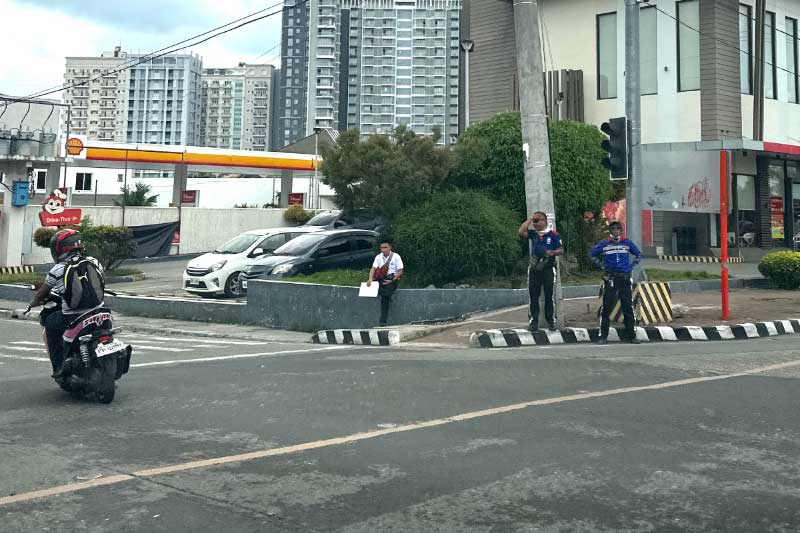
By Joseph B.A. Marzan
Iloilo City Mayor Jerry Treñas on Tuesday warned idle traffic enforcers that they would get the boot if they do not do their job of efficiently managing the city’s traffic situation.
In a statement Tuesday morning, Treñas called out some enforcers who were either smoking, texting, slacking on the road side, or merely conversing with their colleagues during work hours.
“I am making this last warning. Any traffic aide caught at the sides of the streets smoking or texting or conversing with other traffic aides will be immediately dismissed from the service,” he said.
Public Safety and Transportation Management Office (PSTMO) chief Jeck Conlu told reporters that they received complaints with photo and video evidence of some enforcers not doing their jobs.
Conlu emphasized that traffic enforcers are not exempt from the provisions of City Regulation Ordinance No. 2014-527 or the city’s anti-smoking ordinance.
“It’s not all of them, but there were some who have continued to neglect their duties and responsibilities. They have been given warnings,” Conlu said.
“There are exceptions, especially when they are being given instructions by their supervisors or their attention is being called for a while. But there are those just chatting away with workmates or smoking on the side of the roads. Once their photos are sent to us, the mayor instructed that they would be automatically dismissed from our roster,” he added.
Conlu also explained that the expulsion warning is only to those who have already been called out by him, by the mayor or other relevant local government officials.
He refuted criticisms that traffic aides were being singled out, noting that they are the ones visible on the roads and that their job of managing traffic affects everyone, not only residents.
“We want to give better service. We keep telling [our traffic aides] that our job is to give the right and proper service to our motorists and commuters. If we ignore that, we fail our city as a whole. So, we need to deliver what is expected of us because we are the ones always seen on the roads,” he said.
In relation to this, he said that they will hold new activities for the ‘Traffic Academy’ in July, specifically for traffic aides and other local transport-related officials.
This is in partnership with the Metro Manila Development Authority (MMDA) and the University of the Philippines’ National Center for Transportation Studies (NCTS).
More traffic aides are also being hired to increase visibility and traffic management coverage on all thoroughfares.
“It’s not as perfect as we want, but [the Traffic Academy] is as guided by the academe as possible. We have continuous discussions with the UP group and other government agencies, and soon we will launch the final output of the workshops with regard to the Traffic Academy, because this will be the backbone of guiding the personnel serving the roads,” he said.
But as to the regularization of traffic aides, he said that they cannot be regularized, citing personnel regulations issued by the Department of Budget and Management (DBM).
In its Legal Opinion No. 36 released last month, the City Legal Office recognized that one of the issues hounding traffic aides was their employment status.
A May 11, 2009 memorandum of the Land Transportation Office (LTO) provided that only regular personnel of local government units may be deputized by the Department of Transportation (DOTr) to be able to confiscate driver’s licenses.



















